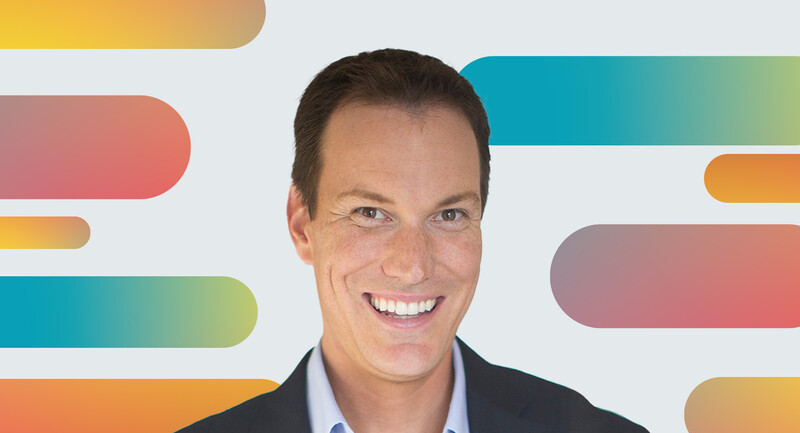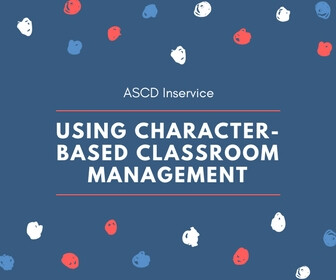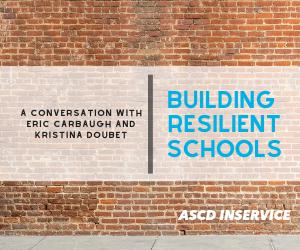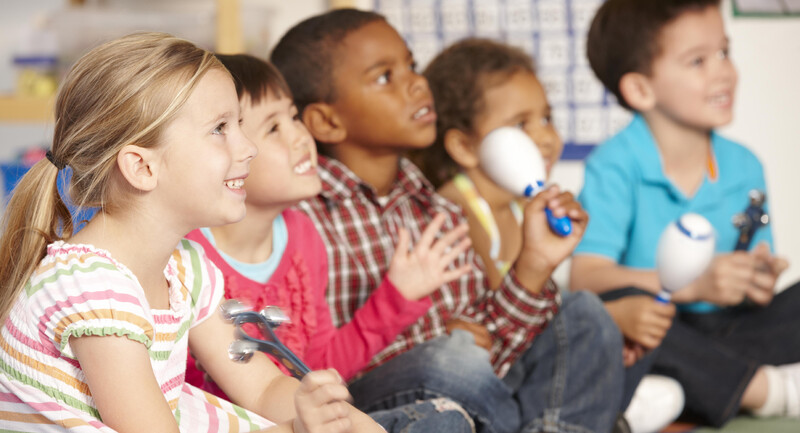One of the world’s leading experts in positive psychology, Shawn Achor, spoke with us about what “happiness” really means—and the transformative effect it can have in education spaces. The researcher, lecturer, and New York Times bestselling author will be a keynote speaker at the 2023 ASCD Annual Conference in March, where he’ll discuss the connection between embracing a positive mindset and evoking our greatest potential.
In this interview, Achor draws on over a decade of research at Harvard University to explain how happiness can help educators navigate stress, rethink “success,” and activate joy in their communities.
Let’s get started with “happiness.” What does happiness mean in the context of your research?
I studied at Harvard in a field called positive psychology, which tries to determine not why we see depression or disorder, but why we see people thriving. As researchers, we define things like optimism, happiness, joy, and hope so we can measure them and see if they change over time. The definition we use for happiness is “the joy you feel moving towards your potential.”
Happiness is the fuel to see not only how you could become better, but how you could better the environment around you.
In this way, happiness is not stationary or static. That's important because happiness is not about complacency or being fine with the status quo. Happiness is the fuel to see not only how you could become better, but how you could better the environment around you.
There’s a common mindset that if you work hard, you’ll be successful, and that will make you happy. Why, according to your research, is this an inaccurate way of thinking? Should educators reframe this “work hard, be successful, become happy” message to students?
My mom was a high school English teacher and my dad a college professor, so I grew up with educators. I got to see not only the struggles that they went through but also the ways they tried to motivate students. One of the things we kept finding in our research, and I found in my own life as well, is the idea that “I will be happy when. When I get this degree, pass this class, get a job.” But at each of those stages where I thought happiness was going to automatically occur, it didn’t. That’s because every time your brain experiences success, your brain changes the goalpost of what success looks like.
There is a myth that success will yield higher levels of happiness. If that was the case, the happiest people in the world would be professional athletes, billionaires, or celebrities—and that's not the case at all. Not only is that idea of success a myth, but it turns out the formula is backwards: We found that if we could raise levels of social connection, gratitude, meaning, or purpose—in other words, happiness—only then did educational outcomes improve dramatically.
Educators are continuously navigating huge stressors, which can quickly lead to burnout. In your TED Talk, “The Happy Secret to Better Work,” you say stress can be viewed as a challenge instead of a threat. What does it mean to turn stressful challenges into opportunities?
When we try to reframe stress as a challenge instead of a threat, it can sound saccharine, like we're sugarcoating the reality of an educator or a student. What we're looking for here is not irrational optimism, which sugarcoats the present and then leads to us making terrible decisions for the future—not only for our lives, but for our governments, businesses, and schools. What we want to start with instead is a realistic assessment of the good and the bad that's currently present in a person's life or in an environment. With this realism, we try to maintain the belief that our behavior matters and that change is possible.
Building onto the distinction between happiness and “irrational optimism,” how can educators sustain a more positive mindset while also tackling challenges and pushing for change?
I think that the opposite of happiness isn't unhappiness. Unhappiness tells us [as educators] where we're not getting support from administration or that we are living in an unequal society or that there's racism or discrimination, right? Unhappiness fuels great change.
What we fight hard against is apathy. Apathy is the loss of joy as you move toward your potential. When I work with teachers, I find that the greatest challenge is when people care so much but get overwhelmed with stressors and don't have enough support. They either become jaded or they start to feel their behavior doesn't matter and they become apathetic.
So, unhappiness is actually really helpful. If you feel unhappy, it tells you that you need to make a change in a relationship or in a job. What we don't want is for people to stop believing that their behavior matters.
As a teacher or education leader, how can a person’s own happiness impact those around them—colleagues, staff, students?
My most recent book is called Big Potential, and in it, I talk about how I realized that happiness was not an individual sport. Small potential is what we achieve alone; big potential is what happens when we activate an ecosystem.
As educators’ levels of happiness grow, students’ educational outcomes can improve dramatically—the entire ecosystem flourishes.
I realized this while working with schools. I have a school training wrapped around a parable called the Orange Frog. In it, I apply positive psychology research to educators and administrators and then see the effects it has not only on them, but also on students’ test scores. I was fascinated by the fact that this training was aimed at educators, and yet as the levels of happiness rose for educators, students’, parents’, or guardians’ well-being scores started improving—even though we weren't working with them. So, Big Potential is all about quantifying the ripple effect that people’s happiness can have: As educators’ levels of happiness, optimism, and gratitude grow, students’ educational outcomes can improve dramatically—the entire ecosystem flourishes.
You emphasize that your research isn’t useful unless it’s lived. What’s one skill, strategy, or step toward happiness that educators could start putting into practice today?
I did a study where, for 21 days in a row, people wrote a two-minute text message or email praising or thanking one person. So, you're taking the idea of gratitude and intentionally pushing it outside yourself. Soon, everyone runs out of people in their immediate social circle to text—and that is the important day because that's the day you have to “scan” your “mental map” of people you know.
As you try to come up with people to text, you start to realize that there are all these weak social connections you don’t often think about. For example, you might think back to your kid's 1st grade teacher who transformed your kid's life, but you don't talk to them anymore because your kid is in 4th grade. When you dig deep, you realize there are all these people you could write a text message to. When people do this, their mental map of social connections lights up—they realize they have a rich network of people they know.
Those weak ties become nodes of meaning and, just 21 days later, your social connection score rises to that of the top 15 percent of people in the world. That’s important because if there's a secret to happiness, it's the breadth and depth of meaning in your social relationships—and you can improve it literally with a text message each day. If you're trying to change not only your own levels of happiness, but how a community or school works, this habit is by far the most positively disruptive we've seen.
Editor’s note: This interview has been edited for space.





